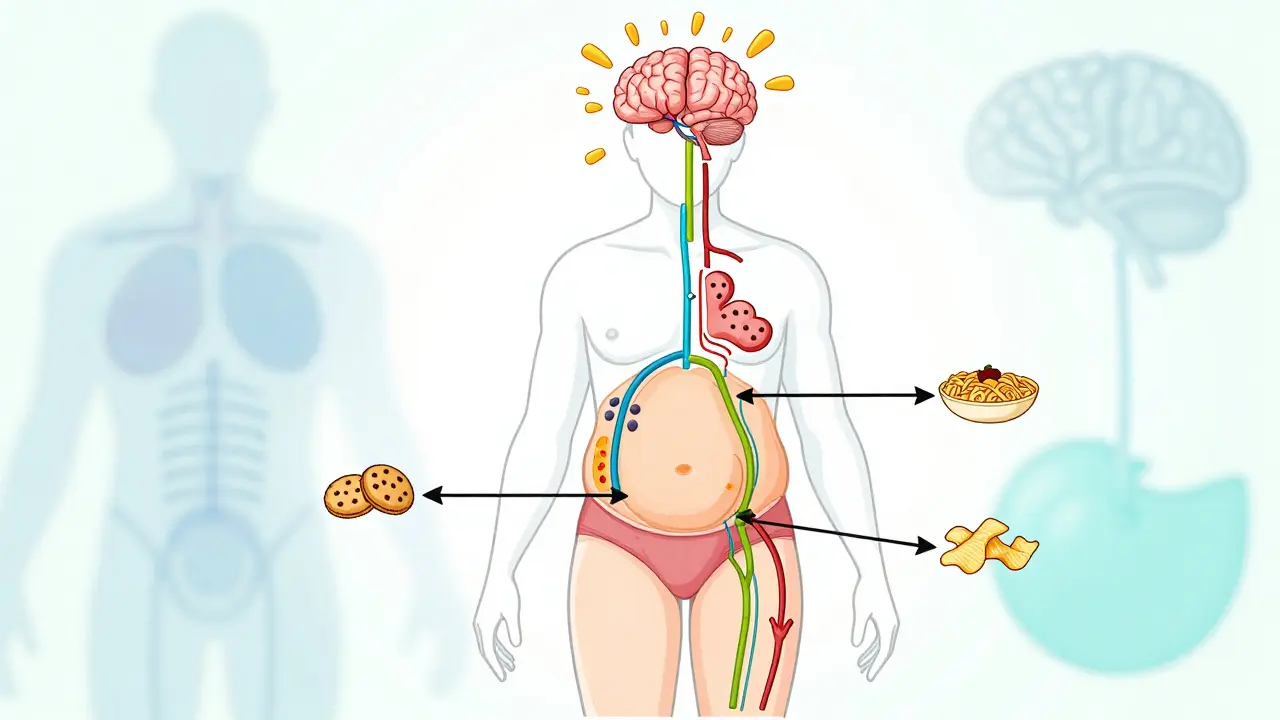Paroxetine (Paxil) is linked to significant weight gain, especially after six months of use. Learn why this happens, how it compares to other antidepressants, and what you can do to manage or reverse it.
SSRI Side Effects: What Every Parent Should Know
Selective serotonin reuptake inhibitors (SSRIs) are often prescribed for anxiety and depression in children and teens. They can be a great help, but they also come with side effects that can feel confusing. Knowing what to expect makes it easier to catch problems early and work with your doctor to keep your child safe.
Common side effects you’ll see
Most kids on SSRIs experience at least a few mild reactions. These usually show up in the first few weeks and often fade as the body adjusts. Typical complaints include:
- Headaches or feeling tired
- Upset stomach, nausea, or loss of appetite
- Dry mouth or increased sweating
- Restlessness or trouble sleeping
- Mild weight changes
These symptoms are usually manageable. Simple tricks—like giving the medicine with food, encouraging regular sleep routines, or offering water throughout the day—can help. If the side effects seem to linger beyond two weeks, talk to the prescriber about adjusting the dose.
When to seek help right away
Some reactions are more serious and need quick attention. Keep an eye out for:
- Sudden mood swings, increased irritability, or new aggressive behavior
- Feeling hopeless, talking about self‑harm, or any signs of suicidal thoughts
- Severe dizziness, fainting, or a fast heartbeat
- Rash, swelling, or trouble breathing, which could signal an allergic reaction
- Unusual bleeding or bruising
If any of these appear, call your doctor immediately or head to urgent care. In the case of suicidal thoughts, call emergency services right away. Early intervention can prevent a small problem from becoming a big one.
Another red flag is a noticeable drop in the child’s school performance or social engagement. Sometimes the medication can make a teen withdraw, and that shift often signals that the dose needs tweaking or a different medication should be considered.
It’s also wise to monitor for drug interactions. Over‑the‑counter cough medicines, certain herbal supplements, and even some foods can affect how SSRIs work. Always check with the prescribing clinician before adding new products.
Finally, remember that each child reacts differently. What’s a minor headache for one teen could be a big deal for another. Keeping a simple daily log—date, dose, any side effects, mood notes—gives the doctor a clear picture and speeds up any needed changes.
Bottom line: SSRIs can be a solid part of treating childhood anxiety and depression, but they require close watching. By knowing the common side effects, recognizing serious warning signs, and staying in regular contact with your healthcare team, you give your child the best chance at a safe, effective recovery.
Clear 2025 guide to Luvox (fluvoxamine): uses, dosing, side effects, and interactions, with NZ context. Practical steps, checklists, a quick facts table, and FAQs.

